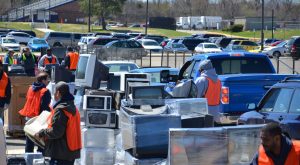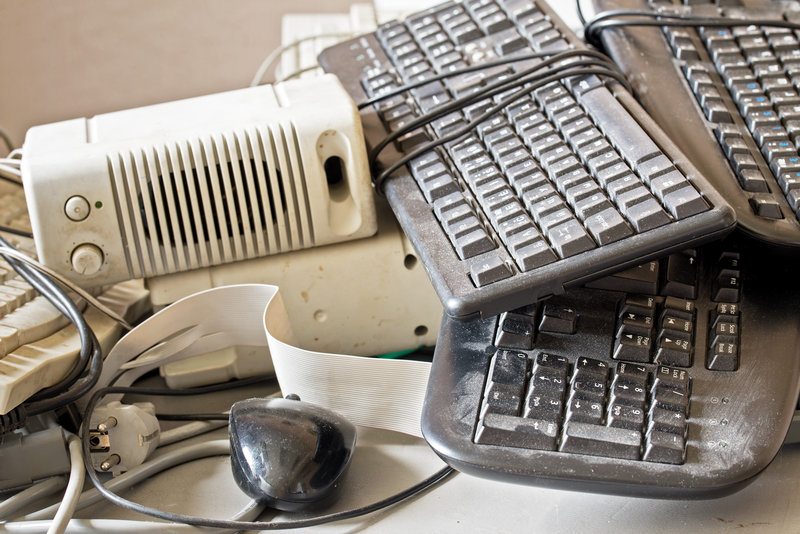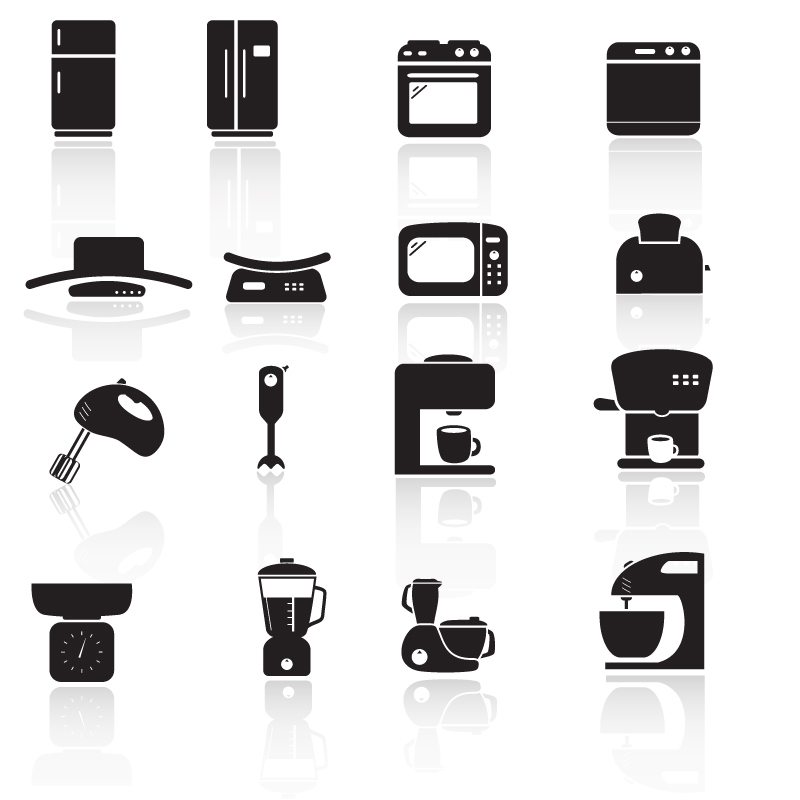New York’s e-scrap collections were down about 3 percent in 2014, while Wisconsin saw an 18 percent drop. At the same time, multiple state environment departments have recommended changes to their extended producer responsibility laws for electronics recycling.


 Statistics released by the U.K. government show well over 500,000 metric tons of household electronics and appliances were collected for recycling in 2015.
Statistics released by the U.K. government show well over 500,000 metric tons of household electronics and appliances were collected for recycling in 2015. California will boost the sums consumers pay when they buy new display devices, ensuring the solvency of a state fund backing e-scrap recycling.
California will boost the sums consumers pay when they buy new display devices, ensuring the solvency of a state fund backing e-scrap recycling. Lawmakers in Ghana have reportedly approved legislation that will result in a national fund to provide collection and recycling services for end-of-life electronics.
Lawmakers in Ghana have reportedly approved legislation that will result in a national fund to provide collection and recycling services for end-of-life electronics. New York state will provide a temporary injection of money to help local governments manage e-scrap collections and recycling.
New York state will provide a temporary injection of money to help local governments manage e-scrap collections and recycling. The Canadian province of Saskatchewan is asking local governments and electronics recycling stakeholders whether appliances, toys and other items should be added to the jurisdiction’s extended producer responsibility program.
The Canadian province of Saskatchewan is asking local governments and electronics recycling stakeholders whether appliances, toys and other items should be added to the jurisdiction’s extended producer responsibility program.  A bill to update the state electronics recycling framework in Minnesota is now awaiting the signature of the state’s governor.
A bill to update the state electronics recycling framework in Minnesota is now awaiting the signature of the state’s governor. A bill winding its way through the North Carolina legislature would eliminate the state’s six-year-old e-scrap recycling system and prohibition on landfilling electronics.
A bill winding its way through the North Carolina legislature would eliminate the state’s six-year-old e-scrap recycling system and prohibition on landfilling electronics. Spain prepares to implement its electronics reuse targets, and activists in Bangladesh urge the government to address the issue of electronics disposal.
Spain prepares to implement its electronics reuse targets, and activists in Bangladesh urge the government to address the issue of electronics disposal. Kenya becomes the first African country to pass a law directing flows of e-scrap, and an Aussie stewardship group reaches out to the country’s business community.
Kenya becomes the first African country to pass a law directing flows of e-scrap, and an Aussie stewardship group reaches out to the country’s business community.